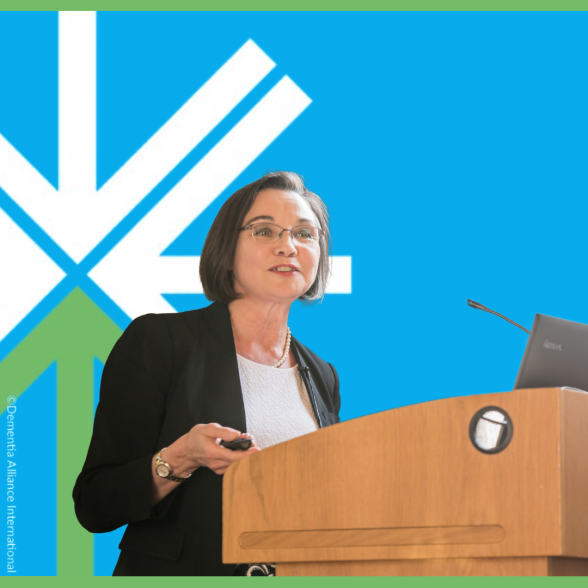Background to the project: Two decades of formal inquiries and a Royal Commission into Quality and Safety in Aged Care in Australia, provide evidence people with dementia continue to have poorer health and social outcomes, than people without dementia. Evidence indicates current approaches to post diagnostic support for people with dementia are ineffective in stopping human rights violations, ending stigma, reducing dependence and disability, or improving self-determination and quality of life. Recent research specifically designed to improve post diagnostic experience for people with dementia remains biomedical, and repeatedly fails to include information and access to disability assessment and support to, for example, maintain a person’s self-determination, quality of life and independence.
There is a paucity of research specifically investigating recognition of human rights and in particular the disability rights of persons with dementias through reframing dementia as a disability. We need a paradigm shift to protect rights of all people with dementia and a new model of care or post diagnostic pathway that better supports them.
The current approach denies people access to disability support, or equitable health and social care including rehabilitation. The WHO 2017 global dementia action plan reinforced dementia as a condition causing disabilities, thus recognising human rights and the CRPD as central to dementia.
About the project: The overall aim of this project is to provide new evidence for ways to improve outcomes for people with dementia.
This will be done through investigating if supporting people newly diagnosed with dementia as people with acquired disabilities, at the time of their diagnosis, or soon after, has the potential to improve their post diagnostic experiences of stigma, self-determination, quality of life and independence.
It will also examine if not supporting people with dementia as people in this way is central to their known poor post diagnostic experiences, and ongoing known violations of human rights.
Participation is suitable for the following people:
People with the lived/living experience of dementia who have been active advocates for at least two years
Care partners and family members of people with dementia (past or current) who have been active advocates for at least two years
Health care professionals
Formal advocates such as lawyers, and disability and human rights experts
Researchers
Participants with the lived/living experience of dementia, care partners or family members of someone with dementia (current or in the past), and health care professionals will have the opportunity to participate in one-to-one interviews, join an advisory group, and participate in roundtable workshops.
Professional advocates, researchers and disability and human rights scholars will have the opportunity to be members of an advisory group and participate in roundtable workshops.
Participants will be emailed all of the participant information, consent forms and any other documents related to this project including where to go if support is needed at an state of the project. They will meet with the researcher on zoom as required to further explain the project, answer any queries, and to participate in the project.
Thank-you options: As the project is part of a PhD degree, it does not have funding for your time and expertise, hence there is no payment for these opportunities. Using zoom reduces costs such as travel. Hopefully, the opportunity to improve the post diagnostic experiences for people with dementia of any age, globally will serve as a thank you.
Other Information: There may be the opportunities for ongoing involvement in the progression of this work following the completion of this research project, which can be discussed at a later date. There may also be an opportunity to co-author a report or a journal article.
This project has been approved by the University of South Australia's Human Research Ethics Committee (Ethics Protocol 205733).
To participate, or for more information, please contact Kate Swaffer at the University of South Australia [email protected]
